


The High Cost of Living in Israel
Written By: Daphna Aviram-Nitzan, Prof. Itai Ater, Nadav Porat Hirsh
40% of Israelis aged 25–44 cited the high cost of living as the issue that concerns them most. 80% of them have had to give up one or more item of expenditure, particularly leisure activities and vacation in Israel and abroad, and about 30% have refrained from buying basic items, food, or cars.
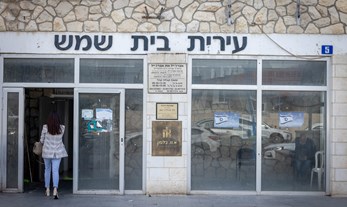
“Nationalizing” Municipal Tax Runs Counter to Local Democracy and to OECD Recommendations
Written By: Dr. Ariel Finkelstein
The OECD recommends granting local authorities’ greater autonomy in setting local taxation. The program being pursued by the current government raises fears of central government taking control of the Arnona (municipal tax) Fund, as has happened in the past.

Can There Be Education without Democracy?
Written By: Dr. Tammy Hoffman
Education can exist without democracy - however democracy cannot exist without education for democracy
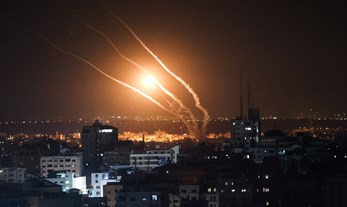
Launching a Military Operation in Gaza without Approval by the Security Cabinet Is Playing with Fire
Written By: Dr. Eran Shamir-Borer
The latest military action in the Gaza Strip was authorized only by the Prime Minister and the Defense Minister, without the prior approval of the Security Cabinet. Israeli decision-makers must ask themselves if this is really the way matters of war and peace should be decided in a democracy.
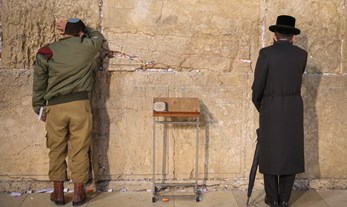
The Government Bill for the Exemption of Ultra-Orthodox (Haredi) Men from IDF Service: A Brief Guide
Written By: Adv. Shlomit Ravitsky Tur-Paz, Dr. Gilad Malach
The ultra-Orthodox (Haredi) Conscription bill, if passed into law, would in effect, allow Haredi men to totally avoid military service.

Israeli Work Life Post Covid
Written By: Daphna Aviram-Nitzan, Yarden Kedar, Roe Kenneth Portal
New survey of Israeli workers reveals changes in levels of satisfaction post COVID pandemic: Most workers in Israel are satisfied with their work-life balance, despite the fact that half of them work more than their official number of hours; around a third report difficulty with functioning in family life

The Meron Disaster as Reflected in Ultraorthodox (Haredi) Society Media
Written By: Dr. Rivka Neriya Ben-Shahar
For years, ultra-Orthodox leadership has been protesting that the internet will bring rack and ruin on the entire community and on individual users, however, the internet and especially the social networks, play a major role in the internal reforms that the ultra-Orthodox must introduce.
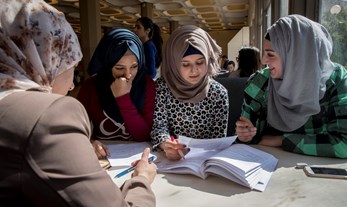
It's Time to Invest Resources in Arab Young Adults
Written By: Dr. Ahmad Badran
Young adults in every society are the face of that society's future, and Arab society in Israel is no different. They face a complex set of daily struggles, in all areas, in their attempt to forge a good future for themselves, their community, and society at large.

Low Prospects for a Compromise Between Opposition and Coalition
Written By: Prof. Tamar Hermann, Dr. Or Anabi
This month we found a slight rise in optimism regarding both the future of democratic rule in Israel and the future of national security. However, almost two-thirds of Arab Israeli respondents replied they are worried that they or family members will be victims of violent crime.
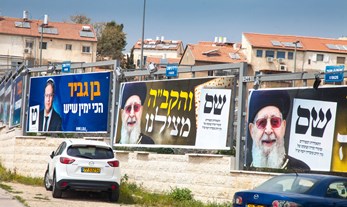
Are Israel's Haredim Leaning Left or Right?
Written By: Eliyahu Berkovits
The deep fear expressed by the leadership of Israelis haredim is not of external criticism, but of an internal blurring of identity and straying from the path.
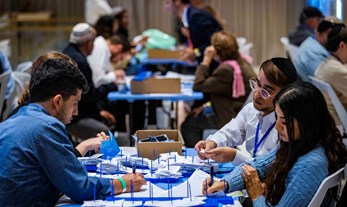
After the judicial reform, the electoral process is next
Written By: Prof. Ofer Kenig
When there are no restraints on what the government can do, the road will be open to “adjustments” (tricks) and “reforms” (schemes and conspiracies) in the electoral process.

The Repeal of the Tax on Disposable Utensils: What Lessons can we Learn?
Written By: Prof. Yuval Feldman, Itamar Popliker
Even though the tax seems to have reduced the use of disposable utensils, its repeal demonstrates that a sustainable change in behavior requires additional measures, including running information campaigns tailored to the ultra-orthodox, making alternatives available, and encouraging their use.
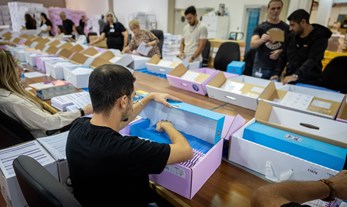
Israel's Electoral System Prevents Accountable Governance
Written By: Dr. Assaf Shapira, Yaniv Roznai
In the system of democracy currently in place in Israel, Knesset members represent the public. This is indisputable. However, the ties between the public and its representatives are very weak.

Judicial Overhaul and Israeli Households
Written By: Daphna Aviram-Nitzan
The impact of the proposed changes to the judicial system on the financial balance of Israeli households: analysis of the M.O.F risk scenarios by income deciles
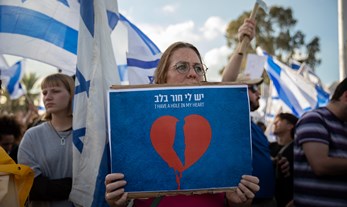
Israel Is Dangerously Polarized
Written By: Dr. Jesse Ferris
Is Israel’s split into pro-and anti-Bibi camps a healthy manifestation of exuberant pluralism—or the symptom of a dangerous and potentially unbridgeable polarization?

Let’s heed the prophets of Israel
Written By: Yohanan Plesner
The Declaration of Independence expresses a deep commitment to freedom, justice and peace in the spirit of the vision of the Biblical prophets, those semi-tragic figures who rebuked the people and their leaders for their behavior. Or in other words, the gatekeepers.
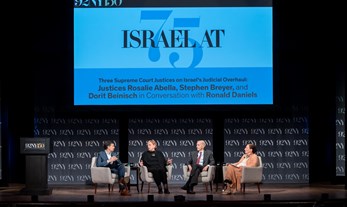
Three Supreme Court Justices on Israel's Judicial Overhaul
Three former supreme court justices from Israel, the United States, and Canada—Dorit Beinisch (Israel), Stephen Breyer (US), and Rosalie Abella (Canada)— assembled at the 92nd Street Y in New York for a timely conversation on the complex legal and political drama unfolding in Israel.

Statistical Report on Religion and State in Israel – New Chapters
Written By: Dr. Ariel Finkelstein, Ayala Goldberg, Adv. Shlomit Ravitsky Tur-Paz
The Israel Democracy Institute published new chapters of the first Biennial Statistical Report on Religion and State.
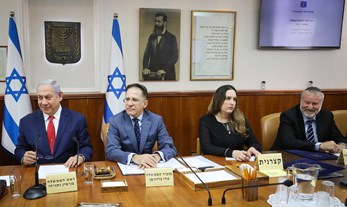
The Role of Legal Advisors - Explainer
Written By: Dr. Guy Lurie, Adv. Daphne Benvenisty
Transforming legal advisors into political appointees will thwart the dual purpose of their role- helping the ministry implement its policy, while maintaining the rule of law.
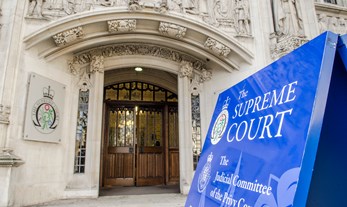
Appointment of Judges to High Courts in Democratic Countries: A Comparative Study
Written By: Prof. Amichai Cohen, Dr. Guy Lurie
The research examined 42 countries included all the OECD member states along with other leading democratic countries.
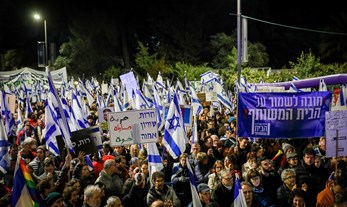
National Mood Unrestful
Written By: Prof. Tamar Hermann, Dr. Or Anabi
This month saw a decline in optimism regarding both the future of democratic rule in Israel and the future of national security. 21% of Israelis have participated in at least one act of protest against the judicial reforms.

71% of Jewish Israeli Don’t Eat Hametz on Passover
While a large majority of Jewish Israelis said they do not eat hametz (leavened bread) on Passover, and a large minority opposes the idea of bringing hametz into hospitals during the holiday, a majority of respondents are opposed to enforcing such a ban and searching the bags of hospital visitors.
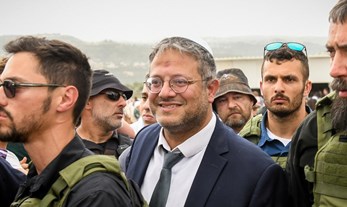
Establishing a National Guard Might Result in the Politicization of Policing in Israel
Written By: Dr. Eran Shamir-Borer, Prof. Amichai Cohen, Dr. Guy Lurie, Dr. Assaf Shapira
The proposed government resolution fails to explain why a National Guard is needed, how to ensure that it does not target minority groups unjustifiably, and what the division of labor will be with the police. It is also liable to result in the increased militarization of law enforcement in Israel, which could lead to disproportionate infringement of human rights.
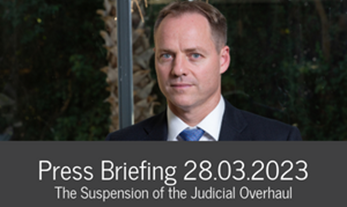
Briefing by IDI President Yohanan Plesner Following the Suspension of the Judicial Overhaul
Briefing by IDI President Yohanan Plesner Following the Suspension of the Judicial Overhaul.
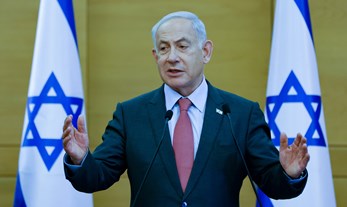
Statement by the Israel Democracy Institute on the Prime Minister’s Decision to Suspend the Judicial Overhaul
The temporary suspension of the judicial overhaul provides an opportunity for the Prime Minister, as well as the leaders of the coalition and the opposition, to turn this crisis into a historic constitutional opportunity.

Faust is Dressed like an Ultra-Orthodox Jew
Written By: Eliyahu Berkovits
The law for “adequate and appropriate representation” that is progressing along the Knesset legislative path is neither just, nor fair; it is neither wise nor ethical. And above all, it is not ultra-Orthodox.
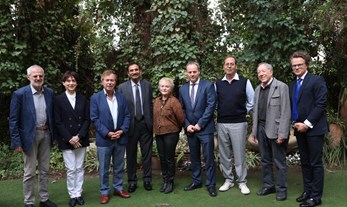
No Other Democracy in the World
"“In Ireland we have a judicial appointment commission which is mixed, but there are no politicians on the commission and there never has been.” Alan Shatter, Former Minister for Justice, Equality and Defense (Ireland)
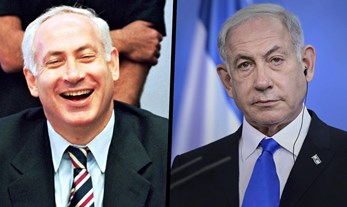
How a once-cautious Benjamin Netanyahu came to lead the most radical coalition in Israel’s history
Written By: Prof. Ofer Kenig
How can Netanyahu — a U.S.-educated and respected world leader who was cautious in his approach to building previous coalitions, and was once respectful of Israeli democratic institutions — support such a dangerous plan? Was the “writing on the wall” earlier on in his lengthy tenure?
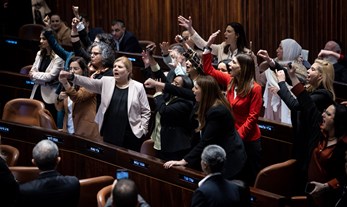
There’s no ‘compromise’ in the coalition’s play for unlimited power
Written By: Prof. Suzie Navot
Slowing the overhaul is a sham. It’s still a hostile takeover of the Supreme Court and its ability to restrain the coalition
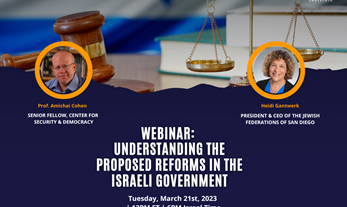
Understanding the Proposed Reforms in the Israeli Government
Understanding the Proposed Reforms in the Israeli Government - Heidi Gantwerk, President of the Jewish Federation of San Diego in conversation with IDI's Prof. Amichai Cohen, Senior Fellow at the Center for Security & Democracy.

